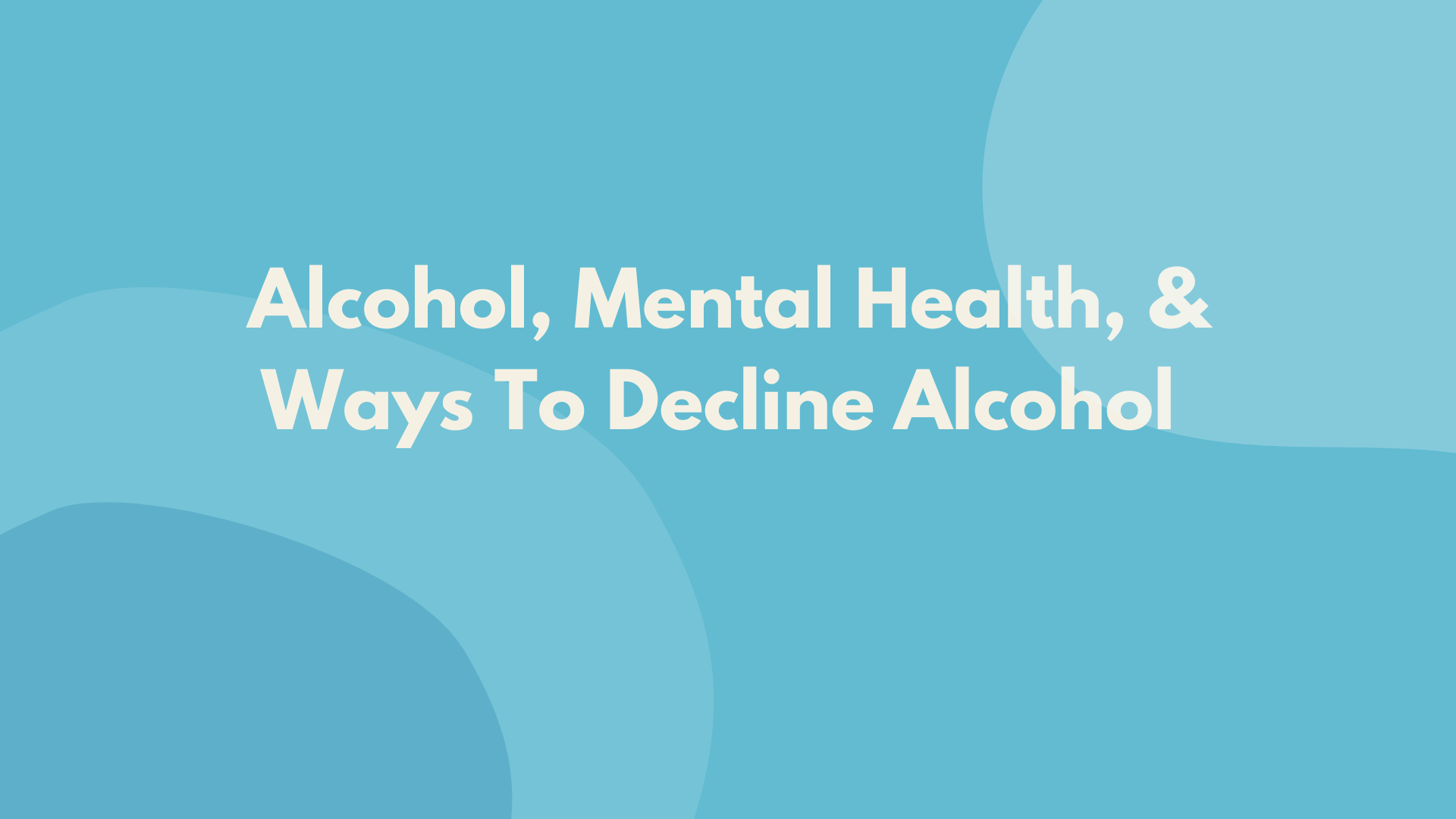
Alcohol is not considered a drug by many, but it is recognised as the most widely used and easily accessible legal drug in Australia. Alcohol is a depressant drug, meaning that it slows down the brain and nervous system. Some people experiencing mental health difficulties may use alcohol as a coping mechanism, however, this is not ideal in the long term.
The connection between alcohol and mental health:
Alcohol has been proven to change the chemical makeup in our brain, affecting our mood, energy levels, sleeping patterns, concentration, and memory. Alcohol use problems and mental illnesses are closely linked. Research shows that regular heavy drinking is linked to symptoms of depression.
People with depression who drink alcohol have been found to feel better within the first few weeks of stopping drinking. Additionally, individuals who use alcohol to cope with their anxiety have been found to often develop an alcohol dependence. Alcohol can reduce inhibitions and impact decision-making. This has been linked to suicidal thoughts, attempts, and self-harm.
Strategies for staying safe when drinking alcohol:
- Understand how much alcohol you should be having – the Australian Guidelines recommend healthy adults drink a maximum of 10 standard drinks a week and no more than 4 standard drinks on any one day.
- Eat before (and during) drinking sessions – alcohol will enter your bloodstream faster when you drink on an empty stomach, making it harder to manage your drinking. Pace yourself with non-alcoholic beverages and non-salty food.
- Count your drinks - Setting a limit and sticking to it will reduce the risk of over drinking.
- Avoid drinking alone.
- Talk to people you trust about your drinking plans.
- Avoid mixing alcohol with other drugs (prescription or illegal).
- Avoid drink spiking: keep an eye on your drink and do not accept any pre-opened drinks.
- Seek support if your drinking is affecting your life.
Peer pressure – and ways to decline alcohol consumption:
Alcohol is the most commonly used substance in a peer pressure situation. Many individuals feel compelled to drink alcohol due to direct or indirect pressure they feel. Direct social pressure is when someone is offering a drink or encouraging a person to drink. This includes having your drink refilled without you asking, having another drink bought for you, or someone giving you a hard time for not drinking. Indirect social pressure is when you feel you should be drinking just by being around others who are. The perception of “everyone is drinking so I should be too”.
Ways to decline alcohol:
- Just say ‘No’ – you don’t owe anyone an explanation and should not feel obligated to drink if you do not wish to
- Be honest about your reasons for not drinking
- Change the subject
- Be the designated driver for the night
- Bring a supportive friend who can support you with refusing drinks
- Prepare a generic excuse, such as:
- “I’ve had enough”.
- “Thanks, but I have a lot of work to do later”.
- Order a non-alcoholic drink
- Know when to leave – if someone is not respecting your decision to abstain from alcohol, simply leave and do not continue spending time with people who do not honour your sobriety

